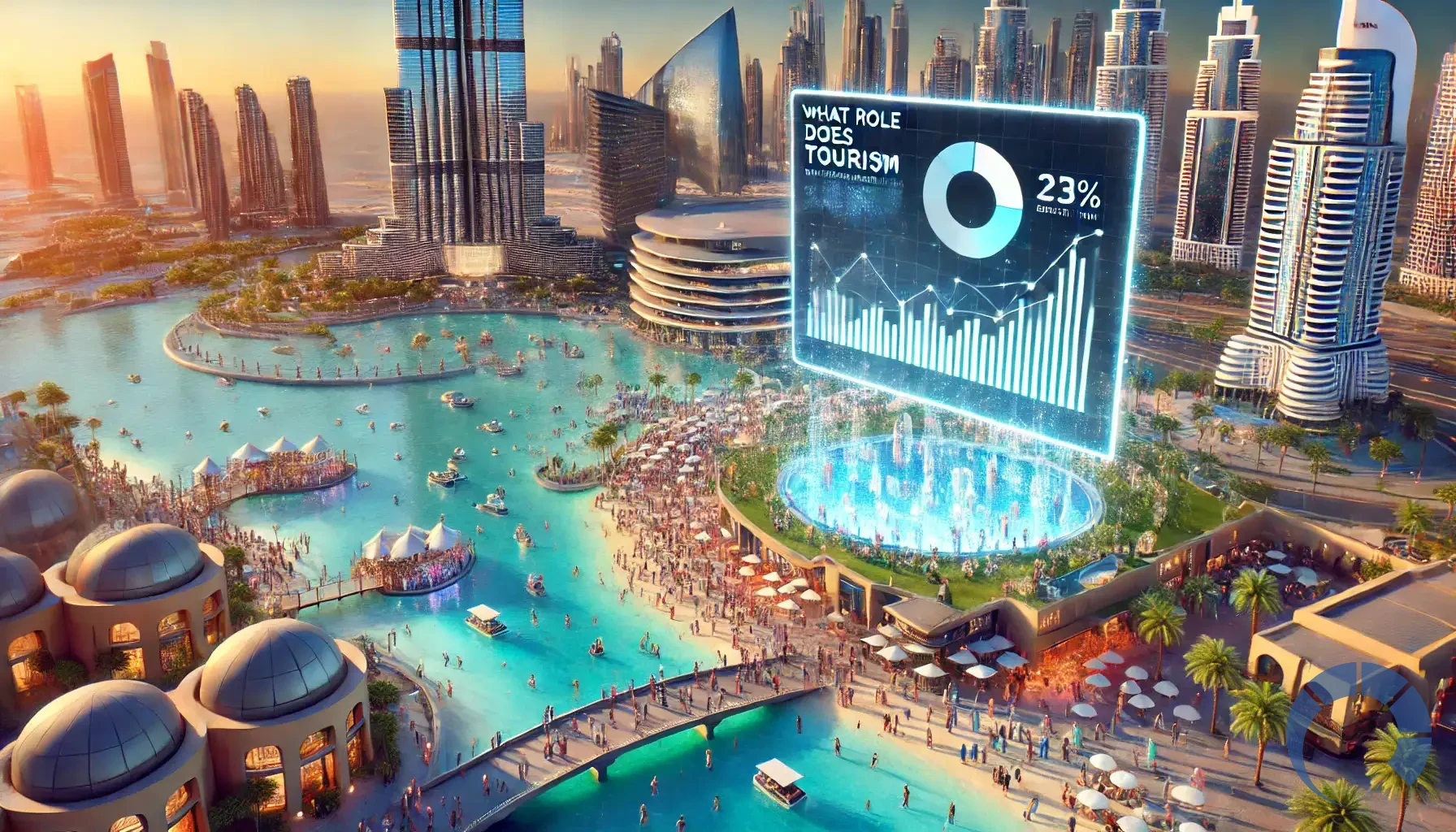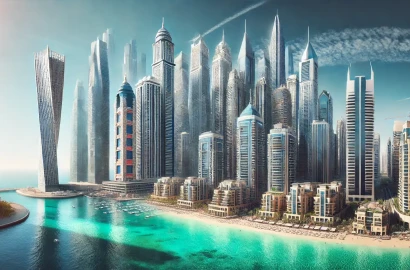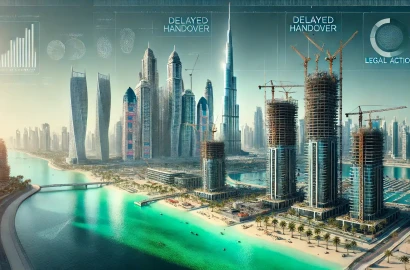
How Tourism is Fueling the Growth of Dubai’s Real Estate Market
Dubai, a city synonymous with luxury, innovation, and ambition, has become a global hub for tourism and real estate. The two sectors are deeply intertwined, with tourism playing a pivotal role in driving demand, investment, and property values in Dubai’s real estate market. From the iconic Burj Khalifa to the man-made marvel of Palm Jumeirah, Dubai’s attractions draw millions of visitors annually, creating a ripple effect that benefits the city’s property market. In this article, we’ll explore how tourism is shaping Dubai’s real estate landscape and why this presents a golden opportunity for investors.
1. Increased Demand for Accommodations
Visitor Influx
In 2023, Dubai welcomed approximately 14.36 million international visitors, a significant increase from previous years. This surge in tourism has directly boosted the demand for both short-term and long-term accommodations, particularly in areas near major attractions like the Burj Khalifa and Palm Jumeirah.
Short-Term Rentals
The rise in tourism has led to heightened demand for vacation homes and short-term rental properties. Platforms like Airbnb have made it easier for property owners to capitalize on this trend, making short-term rentals increasingly lucrative for investors.
What This Means for Investors
- High Rental Yields: Short-term rentals in tourist hotspots often yield higher returns compared to long-term leases.
- Flexibility: Investors can use their properties for personal use while renting them out to tourists during peak seasons.
- Growing Market: With Dubai’s tourism sector expected to grow further, the demand for short-term accommodations is likely to increase.
2. Investment Opportunities
Foreign Investment
The growth in tourism attracts substantial foreign investment into Dubai’s real estate market. Many tourists who visit Dubai end up falling in love with the city and consider purchasing properties, further stimulating the market.
Developer Response
Real estate developers are responding to tourism trends by creating more hospitality-focused properties, including hotels and serviced apartments. These developments cater to both tourists and expatriates, offering a diverse range of investment opportunities.
What This Means for Investors
- Diverse Portfolio: Investors can choose from a wide range of properties, from luxury villas to serviced apartments.
- High Demand: Hospitality-focused properties are in high demand, ensuring steady rental income.
- Global Appeal: Dubai’s reputation as a tourist destination attracts buyers from around the world, boosting property values.
3. Property Value Appreciation
Rising Property Values
The influx of tourists contributes to increased property values in high-demand areas. For example, iconic locations like Palm Jumeirah have seen significant appreciation in property prices due to their attractiveness to visitors and investors alike.
Luxury Market Growth
The luxury real estate segment benefits particularly from tourism, as high-net-worth individuals are drawn to Dubai’s luxury offerings. This trend drives up prices and demand for premium properties, making it a lucrative market for investors.
What This Means for Investors
- Capital Appreciation: Properties in tourist hotspots are likely to appreciate in value over time.
- Luxury Segment Growth: The demand for high-end properties ensures strong returns for investors in the luxury segment.
- Global Recognition: Dubai’s luxury properties are recognized worldwide, attracting wealthy buyers and investors.
4. Infrastructure Development
Government Initiatives
The UAE government’s focus on enhancing tourism infrastructure through projects like the Dubai 2040 Urban Master Plan aims to improve accessibility and amenities across the city. These developments not only support tourism but also enhance the overall real estate market by making areas more attractive for living and investment.
Attraction Development
Major tourist attractions such as the Dubai Mall and the Burj Khalifa have spurred nearby residential and commercial developments. These vibrant communities appeal to both tourists and residents, creating a thriving real estate market.
What This Means for Investors
- Increased Property Values: Infrastructure improvements and attraction development drive up property values in surrounding areas.
- Enhanced Livability: Improved amenities and connectivity make these areas more attractive for long-term investments.
- Sustainable Growth: Government initiatives ensure that infrastructure development is sustainable, providing long-term benefits for investors.
5. Economic Contribution
GDP Impact
Tourism significantly contributes to Dubai’s economy, accounting for about 11.5% of its GDP as of 2022. This economic boost translates into increased spending on real estate, further linking the two sectors.
What This Means for Investors
- Economic Stability: A strong tourism sector contributes to economic stability, reducing the risk of market volatility.
- Increased Spending: Higher tourism spending boosts demand for both residential and commercial properties.
- Job Creation: Tourism creates jobs, increasing the demand for housing and supporting the real estate market.
Why Invest in Dubai’s Real Estate Market?
High Rental Yields
Dubai’s real estate market offers some of the highest rental yields in the world, with average returns of 5-6%. This makes it an attractive option for investors seeking steady income.
Capital Appreciation
Properties in Dubai have shown consistent capital appreciation over the years. With ongoing developments and a strong economy, the value of your investment is likely to increase over time.
Tax-Free Income
One of the biggest advantages of investing in Dubai’s real estate market is the tax-free income. Whether you’re earning rental income or selling a property, you won’t have to worry about capital gains tax or income tax.
Strategic Location
Dubai’s strategic location as a global hub for business, tourism, and trade makes it an attractive destination for investors. The city’s world-class infrastructure and connectivity further enhance its appeal.
Conclusion: A Bright Future for Dubai Real Estate
Dubai’s real estate market is thriving, driven by the city’s booming tourism sector. From increased demand for accommodations to rising property values and infrastructure development, tourism plays a crucial role in shaping the market. These factors create a robust environment for both residential and commercial property investments, making Dubai an attractive destination for investors globally.
Whether you’re seeking a luxurious apartment, a family-friendly villa, or a high-yield commercial property, Dubai offers a wide range of options to suit your needs. The city’s thriving economy, favorable government policies, and global appeal make it a safe and attractive destination for real estate investment.
PHOREE Real Estate: Your Trusted Partner in Dubai Real Estate
For those looking to invest in Dubai’s real estate market, PHOREE Real Estate is your trusted partner. With 40 years of American wealth management expertise, AI-driven insights, and a commitment to client success, PHOREE offers unparalleled guidance and results.
To start your investment journey today, contact us:
- Visit: www.phoree.ae
- Hotline: +971549908590
- Email: Info@PHOREE.AE
- Chat on WhatsApp: Click here to chat with our Investment Advisor
Investing in Dubai’s real estate market has never been easier. Let PHOREE Real Estate guide you every step of the way.
Related posts:
Discover PHOREE Real Estate, led by Munawar Abadullah with 30 years of American Wall Street expertise, and learn how our AI-driven insights empower smart investments in Dubai's hotel and real estate markets. PHOREE Real Estate, Munawar Abadullah, hotel investment, Dubai...
Discover the consequences for developers in Dubai who fail to meet handover dates and learn the legal actions buyers can take. This comprehensive guide covers penalties, compensation claims, regulatory intervention, and the steps to take before filing a legal complaint....

